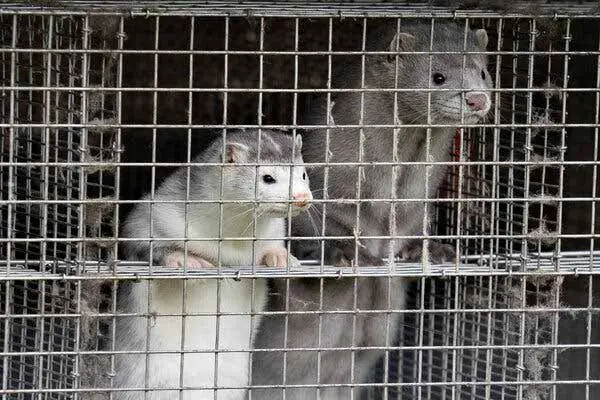Denmark To Kill Up To 17 Million Mink To Stop COVID Mutation From Spreading
Published on November 6, 2020 at 12:59 PM by Mc Noel Kasinja
Millions of mink will be culled and slaughtered in Denmark after being infected with a COVID-19 mutation.

Danish Prime Minister Mette Frederiksen announced that the government plans to cull over 15 million mink.
Denmark, the world’s major exporter of mink furs, is planning to cull mink from over 1,000 farms. This decision comes after it was found that the coronavirus had mutated and infected the mink. Scientists fear that this mutation could affect and interfere with the effectiveness of vaccines. That is, according to The New York Times, 12 people are known to have contracted this mutated virus and now show ‘a weak reaction to antibodies’.
In a Facebook announcement, PM Mette Frederiksen wrote:
But the virus is mutated in mink. The mutated virus has spread to humans. And the State Serum Institute has found examples of viruses in people showing reduced susceptibility to antibodies. This means that the mutated virus – via mink – can pose the risk that the upcoming vaccine will not work the way it should. The conclusion from the State Serum Institute is quite clear: “Continued minkering during an ongoing COVID-19 epidemic poses a significant risk to public health, including the possibilities to prevent COVID-19 with vaccines”. It requires very resolute action. And as a government we will do everything we can to ensure that the mutated infection is included and does not spread further. That’s why – unfortunately – it’s necessary to put down all mink in Denmark. Breeding animals too.
Explaining that there are no scientific details, Dr. Emma Hodcroft, a geneticist at the University of Basel, Switzerland, urges people not to worry:
If you're seeing tweets about the #SARSCoV2 'mink mutation' in Denmark:
– This is all coming from press conference/release, we have no scientific context/details yet
– Details do matter when it comes to assessing thisDon't panic. Scientists will update when we have more info.
— Dr Emma Hodcroft (@firefoxx66) November 4, 2020
Similarly, Francois Balloux, the director of the University College London Genetics Institute and a professor of computational systems biology commented.
In a Twitter thread, Balloux explained that the news which has flooded the Internet is problematic as he notes: “There are elements of truth in it but the reporting is completely irresponsible”. Taking this further, he clarified that “Minks are highly susceptible to #SARSCoV2, as are most carnivores including dogs and domestic cats. There have been several massive outbreaks reported in mink farms in multiple countries, as the crowded conditions are perfect for rapid viral spread.” However, he explains that this should not cause panic:
#SARSCoV2 mutations acquired in minks are not concerning. We already knew that #SARSCoV2 can transmit from minks to humans. Though, this should be of no concern in terms of the evolution of the transmissibility of the virus.
4/https://t.co/OGajutsXCe— Prof Francois Balloux (@BallouxFrancois) November 4, 2020
There are thousands of mutations in #SARSCoV2 arising constantly. The fact that a few have been observed in minks will not change the strains in circulation in humans. If they were beneficial for the virus to infect its human host, they would be at high frequency already.
6/— Prof Francois Balloux (@BallouxFrancois) November 4, 2020
Subscribe to our Youtube Channel:


